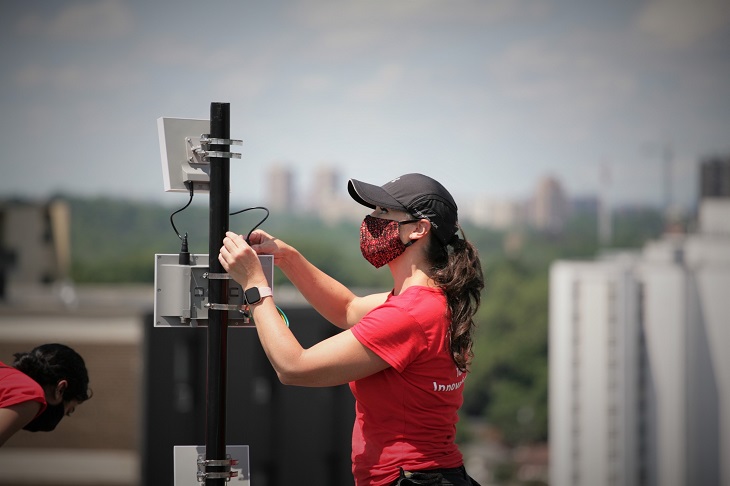
TORONTO — Cisco Canada and the City of Toronto today announced the launch of Digital Canopy, made possible through Cisco’s $1-million investment of in-kind technology and services, which will see the expansion of Wi-Fi access in some of Toronto’s most vulnerable communities.
Funded through Cisco’s Country Digital Acceleration (CDA) program in collaboration with Cisco’s Toronto Innovation Labs, the Digital Canopy initiative will provide free Wi-Fi hotspots for approximately 13,000 Torontonians, says the news release.
Cisco’s Toronto Innovation Labs and the City of Toronto brought together network providers, Internet service providers and managed service providers to launch Digital Canopy. Partners include Bell Canada, BAI Canada, OnX Canada, Beanfield Metroconnect, Toronto Mesh, Century Concrete Products and Southwinds Engineering. Cisco is deploying its state-of-the-art Meraki Wi-Fi access points to offer fast connections, high user capacity and extensive coverage to underserved communities, says the release.
“The pandemic has transformed the way we live, learn and work, while exposing the scale and severity of the digital divide in Canada. Technology and innovation play a critical role in bridging this gap,” said Wayne Cuervo, director of Cisco Innovation Labs, in the release. “Having reliable Internet is fundamental for online school and distance learning, remote work and maintaining important social connections. Working in partnership with the City of Toronto and our ecosystem of partners, Cisco is proudly leveraging its technology to help to improve digital access for thousands of Torontonians in priority neighbourhoods.”
Residents living in low-income residential tower communities are the focus of the Digital Canopy initiative. The first Digital Canopy site is now enabling Internet access for approximately 2,000 residents in Toronto’s Rockcliffe-Smyth community. Additional sites are planned in a number of other neighbourhoods, including Thorncliffe Park, West Hill and Scarborough Village. With up to 25 Wi-Fi hotspot sites planned by the end of 2020, Digital Canopy has the potential to connect 6,600 units and about 13,000 residents living in low-income apartment buildings with free Internet for up to one year, says the release. Pictured above in a photo from Cisco is a recent install.
“With the reduced access to many public spaces across the city, now more than ever it is critical we make the digital realm accessible for all,” said Lawrence Eta, chief technology officer for the City of Toronto. “Our collaboration with Cisco and other partners has gone a long way towards providing inclusive and accessible Internet connectivity in the city and advancing the principles of the City’s Digital Infrastructure Plan.”


